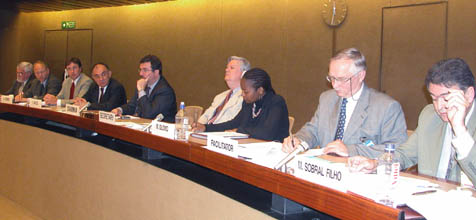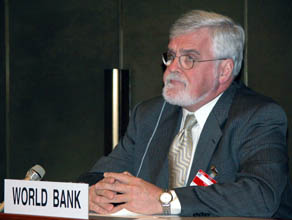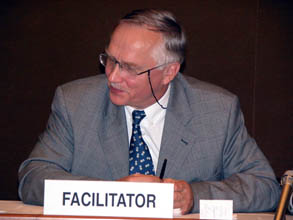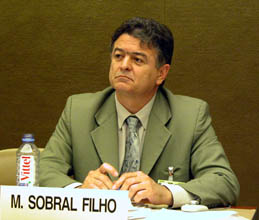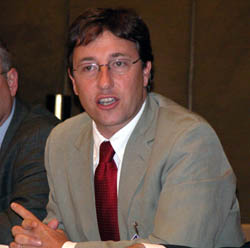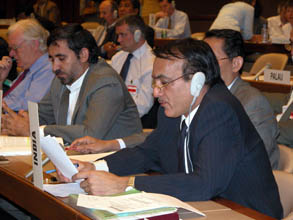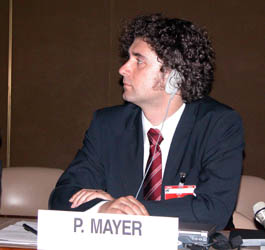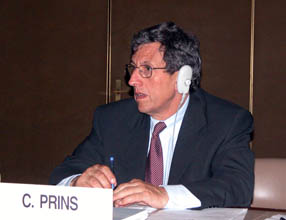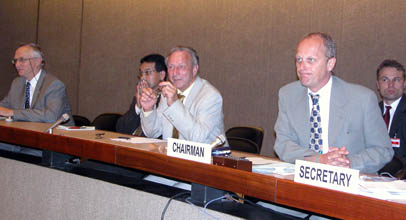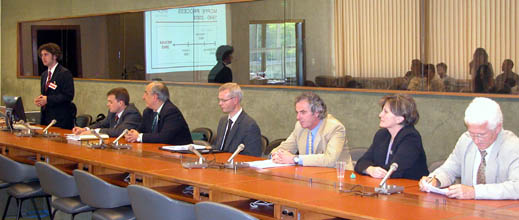|
![]() UNFF-3 in French
UNFF-3 in French
![]() Links
to UNFF and Forest Internet Resources
Links
to UNFF and Forest Internet Resources
![]() Linkages
Home
Linkages
Home
|
|
Highlights for
Friday, 30 May 2003Despite a UN holiday on Thursday, delegates met informally to continue working on the terms of reference (ToR) for the ad hoc expert groups. On Friday morning, delegates convened in Plenary to consider economic aspects of forests and, in the afternoon, to participate in a panel discussion on regional initiatives relating to enhanced cooperation. Above photo: The panel on "Economic Aspects of Forests".
| Economic Aspects of Forests: | |
|
|
|
|
|
|
|
|
|
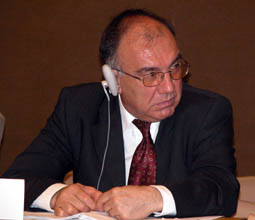 Yilmaz Akyüz, UNCTAD, described the disparity between forest resources and market share among developing countries and focused on the competitive disadvantages faced by developing countries in exporting forest resources. He noted that sustainable exploitation of natural resources, and the diversification into high value-added products, requires investment in fiscal and human capital. |
|
|
|
|
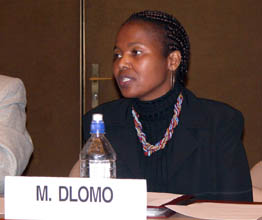 Stressing that SFM goes hand in hand with improvement of livelihoods, Maud Dlomo, South Africa, stressed the need for the meaningful participation of local actors in addressing the challenges of SFM within the context of globalization. |
|
|
|
|
|
|
|
|
|
|
|
|
|
|
|
|
 Marvin Brown, American Forest and Paper Association, stressed the need to ensure the competitiveness of sustainable enterprises and called upon the UNFF to: give a voice to all major stakeholder groups; continue to facilitate the dialogue on certification systems; and prioritize developing effective MAR on progress in achievement of SFM. |
|
|
|
|
|
|
|
|
|
|
|
|
|
|
|
|
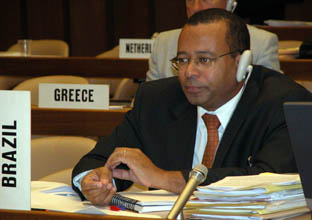 BRAZIL called for the investigation of how to add value to forest products and services and noted the importance of including mention of the agreements on traditional knowledge and benefit sharing from the Johannesburg Plan of Implementation. |
|
|
|
|
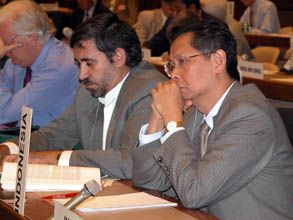 INDONESIA declared the reduction of tariff and non-tariff trade barriers a priority in achieving objectives and stressed the need to enhance implementation of commitments to finance sustainable forest management through the provision of financial resources, technology transfer and capacity building. |
|
|
|
|
|
|
|
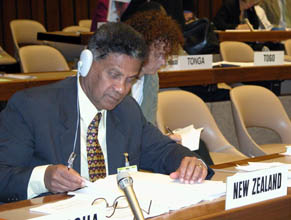 NEW ZEALAND stressed the need for accurate valuing and pricing of environmental services and for market clearance for products from sustainably managed forests. |
|
| Enhanced Cooperation and Policy and Programme Coordination: | |
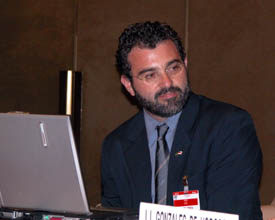 Virgilio Viana, Brazil, presented regional experiences in the Amazon region, and stressed the need to increase stakeholder control over forest management, pay indigenous people for intellectual property rights, and enhance South-South collaboration. |
|
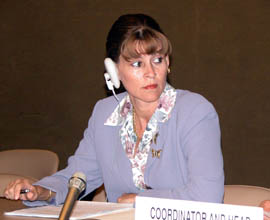 Liza González, Nicaragua, reported on Central American approaches to SFM, and listed regional initiatives and institutions relevant to forest management. |
|
|
|
|
|
|
|
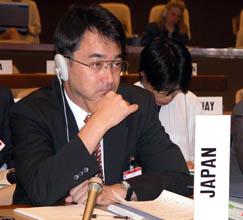 Describing the Asia Forest Partnership, JAPAN outlined positive achievements regarding law enforcement, fire prevention, rehabilitation of degraded lands, and enhanced cooperation and information management. |
|
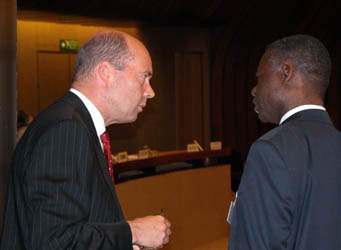 Congo expressed gratitude to the donors for the launch and implementation of the Congo River Basin Initiative. Left photo: Pekka Patosaari, UNFF Coordinator and Head, in conversation with the delegate from CONGO. |
|
|
Links
Recent
SD coverage on Forest:
|
|
Back to Linkages home - Visit IISDnet
- Send e-mail to ENB |

 United
Nations Forum on Forests, Third Session
United
Nations Forum on Forests, Third Session